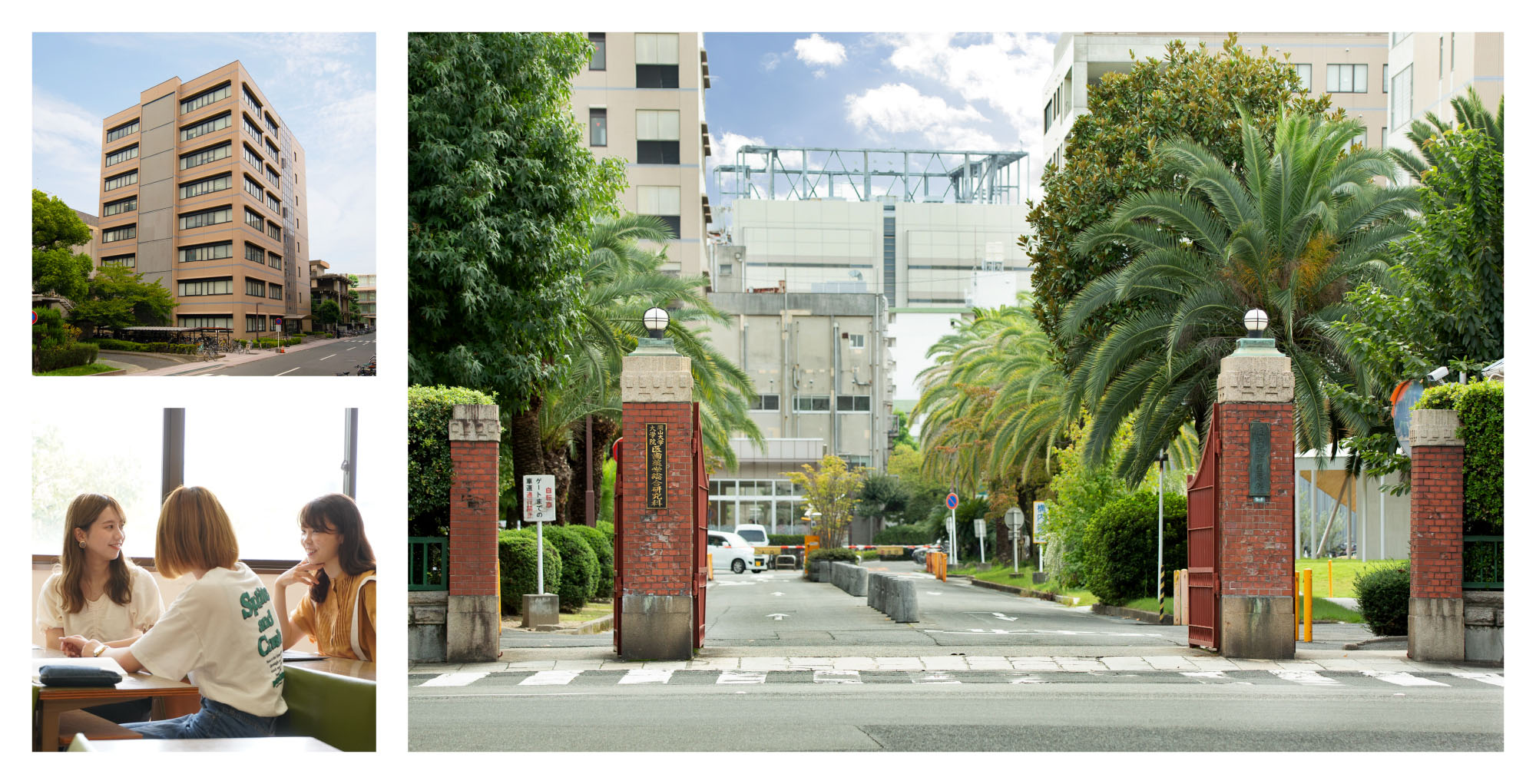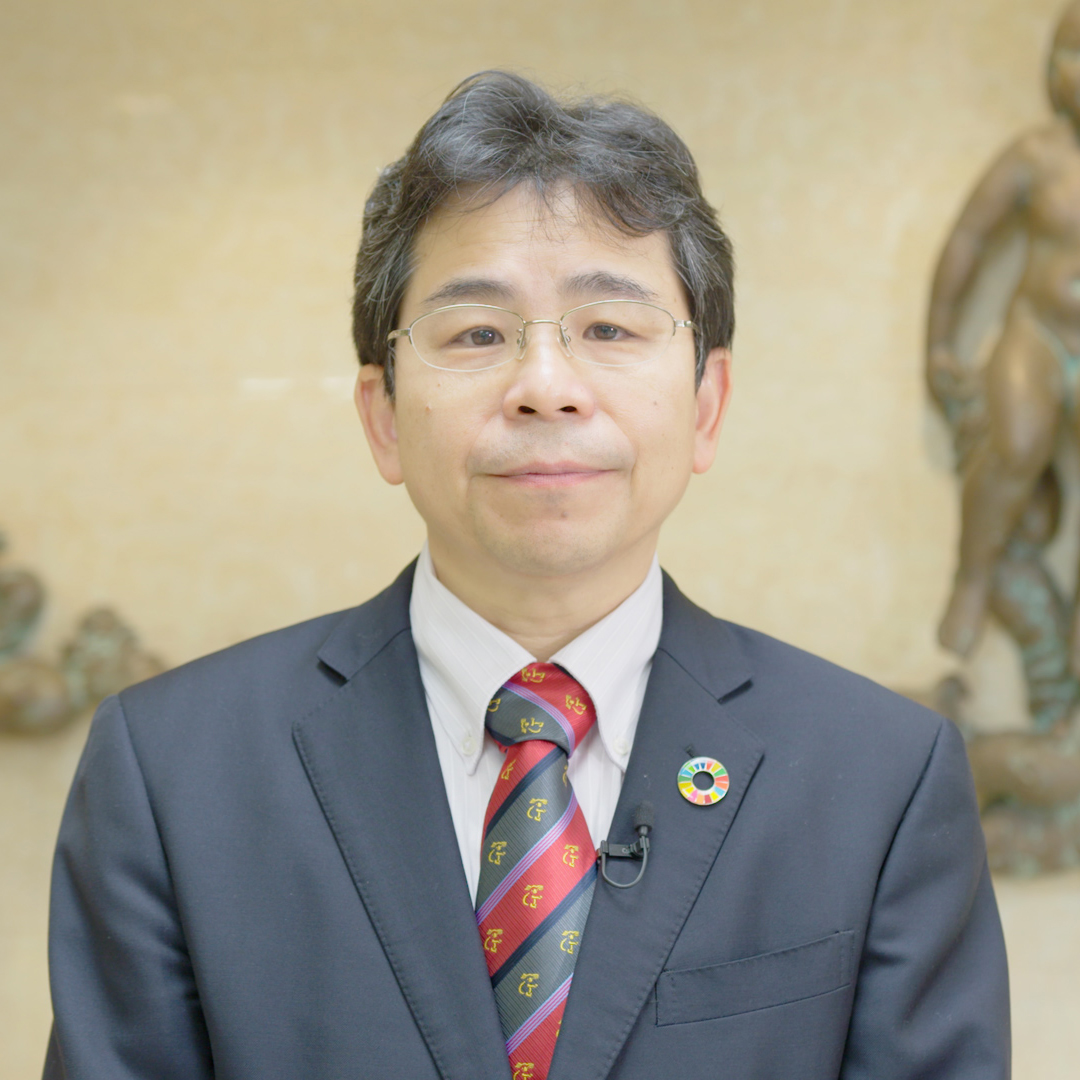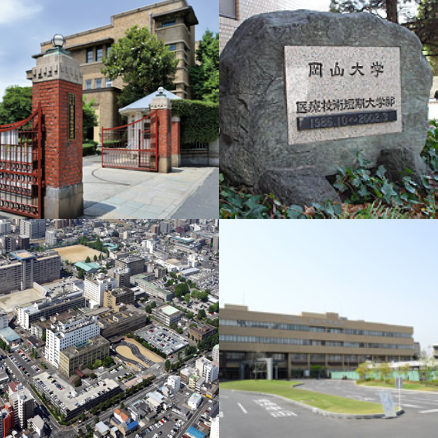About
DEPARTMENT
OF
HEALTH
SCIENCE
保健学科

MESSAGE
Message from the Chair
Department Chair
HIROHATA, Satoshi

The importance of medical care has been widely recognized in the spread of infections caused by the new coronavirus. The Department of Health Sciences, Faculty of Medicine, Okayama University, is located on the Shikata Campus centered in a university hospital and is divided into offering three majors: nursing, radiation technology science, and examination technology science. We aim to develop human resources that can play an active role in responding to medical welfare and digital transformation (DX) in an aging society.
Okayama University is a comprehensive university with 10 faculties. Through club activities, you can expand your circle of interaction with students from other faculties and other relevant people, and develop the humanity required to become a medical staff member. In addition, clinical training is conducted on the Okayama University Hospital campus, where you can lay the foundation for practicing team medical care with advanced expertise and skills. At the Shikata Campus, the most advanced medical care in Japan is provided by Okayama University Hospital, and you will be immersed into the front line of medical care.
Furthermore, the Department of Health is also focusing on overseas exchanges, aiming to develop human resources so that students can travel via exchanges to work in other parts of the world in the future. Please acquire the spirit of taking on new challenges during your student life at Okayama University. We are promoting the SDGs (Sustainable Development Goals) and aims to train medical staff to acquire problem-solving abilities. We want students to strive toward their dreams to expand their possibilities and options for the future. Let us make history together.
HISTORY
History and Tradition

In 1870, the Okayama-Han Medical Training School was established by the Lord of Okayama, to advance medical science. It was later renamed the Okayama Medical College, before becoming the Okayama University Medical School in 1949.
In October 1986, several vocational schools already at Okayama University (School of Nurses, School of Radiotechnology, and School of Medical Technology belonging to the Medical School) and various other schools (Schools of Midwives) were reorganized to form the School of Health Sciences (Department of Nursing (80 students), Department of Radiotechnology (40 students), Department of Health Technology (40 students) and Postgraduate Midwifery Course (from 1990)).
In October 1998, the School of Health Sciences was reorganized and converted into the Okayama University Medical School, resulting in establishment of the Faculty of Health Sciences: Department of Nursing (80 students), Department of Radiological Technology (40 students), and Department of Medical Technology (40 students). It has a total of 8 courses in 3 departments.
In April 2003, the Graduate School of Health Sciences was established. It then provided a major in Health Sciences (Master’s Course): Nursing (14 students), Radiological Technology (6 students), and Medical Technology (6 students).
In April 2005, the new Graduate School of Health Sciences Master’s Course was established. It then provided a major in Health Sciences: Nursing (14 students), Radiological Technology (6 students) and Medical Technology (6 students)) and the Ph.D. Course (major in Health Sciences: total of 10 students in Nursing, Radiological Technology and Medical Technology).
GOALS
Educational Priniciples and Goals
The role of healthcare activities is to support the health and well-being of people by providing treatment and care for people with diseases, assisting people with disabilities, and through education and instruction on disease prevention and health management. The mission in educating medical technology experts is to nurture graduates who can fulfill the roles of healthcare professionals, according to current and expected future needs. Japan’s rapidly declining birthrate and aging population in recent years have brought big changes in the healthcare environment, and there is a need for healthcare services that respect quality of life.
On the other hand, healthcare innovations are making it increasingly sophisticated and specialized. High quality medical professionals are therefore needed who have not only advanced skills and expertise and sound scientific judgment, but also a rich sense of humanity and sensitivity for gaining a comprehensive understanding of people, as well as an ethical nature and creativity. They also need to be able to perform healthcare activities based on smooth coordination with others.
The Faculty of Health Sciences nurtures graduates who respect the independence of people, who can provide high-quality medical care for people at various levels of health, and who are can contribute to the development and internationalization of healthcare.
DEGREE POLICY
Degree Policy
Good education for medical service, rich in humanity [Education]
– The graduate shall be interested in various issues relating to nature and society, and shall have acquired a good education backed by abilities to think logically, form judgments and be creative, as well as a sense of humanity and ethics as a trusted medical professional.
Expertise for promoting the health of all types of people [Expertise]
– In addition to solidly learning specialized knowledge to help all types of people live healthy lives, the graduate shall be able to contribute to society by applying advances in science to the development of health-related technologies, and to solutions for health-related problems.
Ability to communicate information to meet health needs [Information abilities]
– To meet the health needs of residents and patients, the graduate shall have abilities to collect and analyze information about nature and society from various angles, and to communicate the results of those analyses to the local and international communities.
Ability to act as a leader in medicine and health [Action]
– As well as the communication skills necessary as a member of a medical team, the graduate shall possess an international mindset and language ability to contribute to the local and international communities. The graduate shall also have acquired abilities for achievement to shape trends and lead communities, both individually and in a team.
Ability for self-realization while maintaining a healthy life [Self-realization]
– As a medical professional with a rich sensitivity in which patients and residents can place trust, and with a disposition for enjoying culture and sport, the graduate shall pursue learning, enjoyment and self-realization throughout the course of his/her career.
